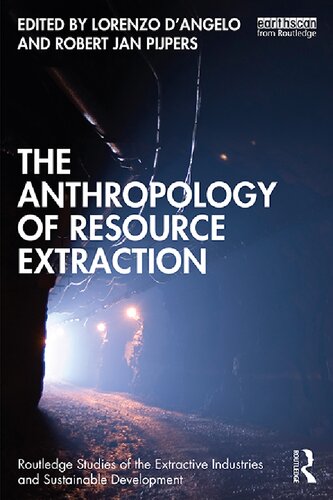

Most ebook files are in PDF format, so you can easily read them using various software such as Foxit Reader or directly on the Google Chrome browser.
Some ebook files are released by publishers in other formats such as .awz, .mobi, .epub, .fb2, etc. You may need to install specific software to read these formats on mobile/PC, such as Calibre.
Please read the tutorial at this link: https://ebookbell.com/faq
We offer FREE conversion to the popular formats you request; however, this may take some time. Therefore, right after payment, please email us, and we will try to provide the service as quickly as possible.
For some exceptional file formats or broken links (if any), please refrain from opening any disputes. Instead, email us first, and we will try to assist within a maximum of 6 hours.
EbookBell Team

4.3
78 reviewsThis book offers an overview of the key debates in the burgeoning anthropological literature on resource extraction.
Resources play a crucial role in the contemporary economy and society, required in the production of a vast range of consumer products and are at the core of geopolitical strategies and environmental concerns for the future of humanity. Scholars have widely debated the economic and sociological aspects of resource management in our societies, offering interesting and useful abstractions. However, anthropologists offer different and fresh perspectives - sometimes complementary and at other times alternative to these abstractions - perspectives based on field researches conducted in close contact with those actors (individuals as well as groups and institutions) that manipulate, anticipate, fight for, or resist to the extractive processes in many creative ways. Thus, while addressing questions such as: ‘What characterises the anthropology of resource extraction?’; ‘What topics in the context of resource extraction have anthropologists studied?’; and ‘What approaches and insights have emerged from this?’, this book synthesises and analyses a range of anthropological debates about the ways in which different actors extract, use, manage, and think about resources.
This comprehensive volume will serve as a key reading for scholars and students within the social sciences working on resource extraction and those with an interest in natural resources, environment, capitalism and globalisation. It will also be a useful resource for practitioners within mining and development.